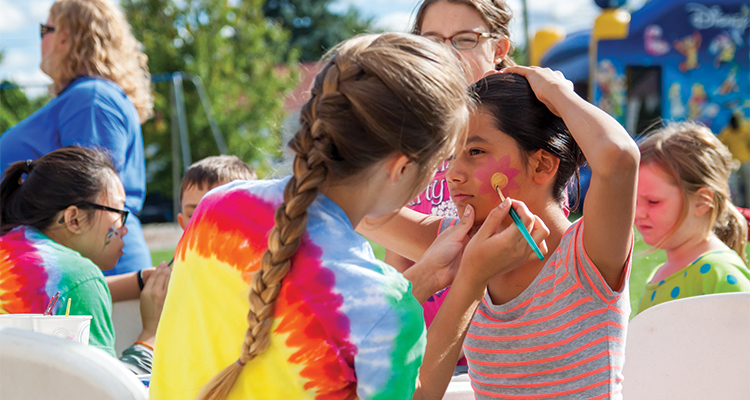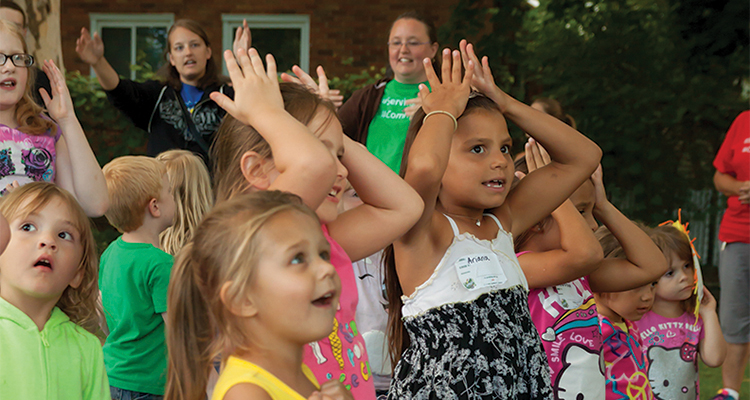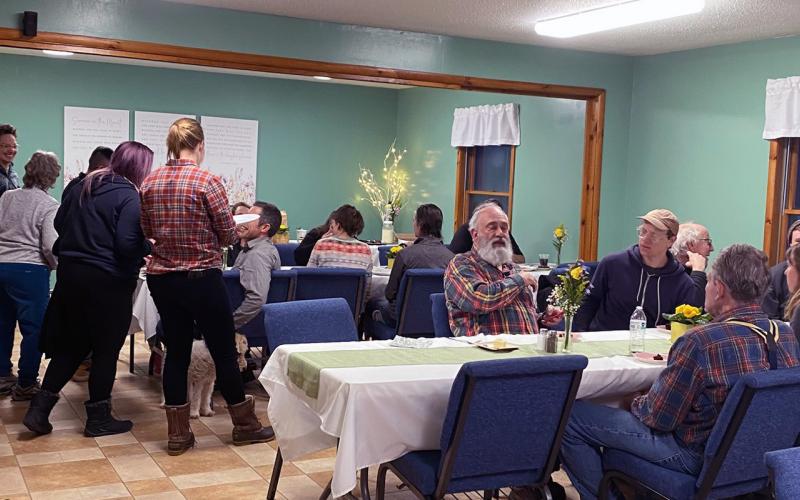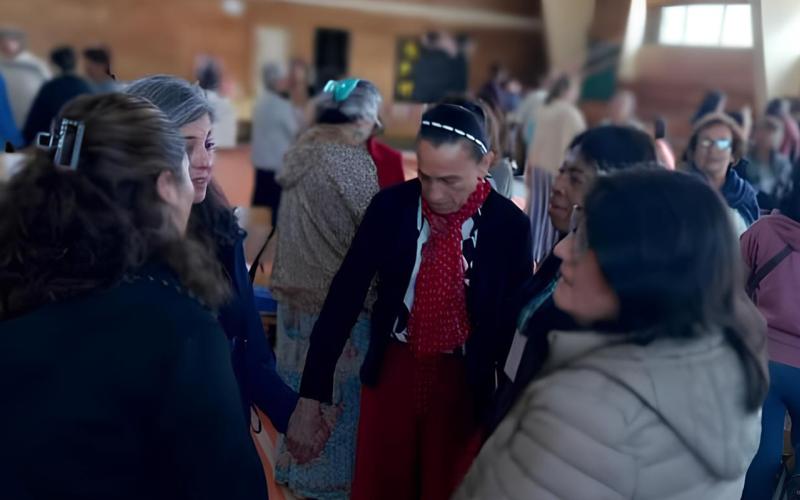
Come to the park: Ohio church creates change through relationships

In 2014, a half-million people in Toledo, Ohio, lost access to safe water due to a toxic algae bloom in Lake Erie, which supplied the city’s water. At that point, the East Toledo campus of Hope Community Church of the Nazarene took action.
The church believes in partnership — both with the community and other organizations. They called up a partner that helps get food to people who need it most, and within 24 hours they had 1,100 cases of bottled water to distribute.
“It’s just a practical way to show people the love of Jesus by giving them water,” said Jacob Hawes, pastor of Hope Community’s East Toledo campus.
Being church
The church’s East Toledo campus started four years ago, though they have been holding worship services for only two years. Rather than building on a service inside the church walls, they first wanted to build a foundation of service to the community where they were located.
“We didn’t just want to do church,” Hawes says. “We wanted to be church.”
The church was an answer to the dwindling number of Nazarene churches in the area; since 1980, the number has gone from nine to two. Since they didn’t want to duplicate efforts that were already in place, the congregation began to support organizations like the East Toledo Family Center, which was already doing positive work in the community. The church helps provide volunteers for the Family Center, where they also meet for worship services and have office space.
“No matter what we ask of them, they [the congregation] try really hard to do it and are always giving back to the community,” said Jodi Gross, community builder at East Toledo Family Center.

Building relationships
Both the Family Center and Hope Community believe relationships that lead to empowerment are what will ultimately help community members. The church helps the Family Center run holiday events, and together, they are building relationships that will enable them to empower people on a path out of poverty.
“We’re all East Toledo,” Gross said. “Let’s work together to create change.”
Hope Community believes they can embody what it means to be church by building those relationships, then watching God work. According to Hawes, East Toledo is on the brink of change, and he wants to make sure the church is there to do God’s work.
“We’re at a make or break time in our city. If the church doesn’t come around and start being the church — not just on Sunday mornings — the city is going to slip,” Hawes said. “But if the church comes around in the parks and neighborhoods, it can be redeemed. It can be saved.”
Those parks and neighborhoods are some of the places the church is most excited about working. In fact, many of its programs run out of a park. In another display of relationship building, the church reached out to the City of Toledo to ask if they could own and maintain a park they had noticed was in disrepair. When the city agreed, the church knew it had its home base.
There, they host backyard Bible clubs, throw block parties, organize service days, and do just about anything they can think of to connect with the community. Neighborhood residents joined the church to raise enough money to put up pavilions and picnic tables to make those events even easier to host.
“When we have work days, it’s not just church people,” Hawes said. “It’s neighborhood people [too].”
This summer, they are expanding their programs past their one park to the rest of the city with two trailers holding everything they need to host block parties. In eight weeks, they will throw six events all over the city to see where people want to get involved. Those spots will then be considered for new missional communities or church plants. Throughout the project, they will be praying and trying to discern whether God is leading them to start churches in each spot.
The main purpose of those parties, Hawes says, is “basically just to build relationships with people and get to know them.”
Hope Community is also trying to develop relationships with young people in the area.
“We realized that we have people we’re sending to our Nazarene schools [universities], and they’re not engaging with the church,” Hawes said. “We’re kind of losing them.”

Filling gaps
The block parties this summer will be run in part by young adults through Youth in Mission, which provides mission opportunities for young adults between the ages of 18 to 25. Ultimately, new churches will also be started through the initiative of young adults.
“Young people are creative and ready for a new type of church, something that will reach their friends,” Hawes said.
Right now, the church is in the beginning stages of developing a system with different stages of volunteers and staff ranging from high schoolers to post-college graduates.
If Hope Community’s other projects are any indication, their pattern is to move where God leads them to work in the community. From making sure a local elementary school had full access to their library to providing assistance to their many community partners, the East Toledo campus of Hope Community has been on the move.
“We haven’t created a whole lot of new things,” Hawes said. “We’ve stepped into the gap and tried to figure out how we can help.”
And whether it’s through trailers full of activities, bottles of drinking water, volunteer hours, or a park where relationships are built, it’s clear that the East Toledo campus isn’t going to stop engaging their community anytime soon.
--Republished with permission from the Summer 2016 edition of NCM Magazine



